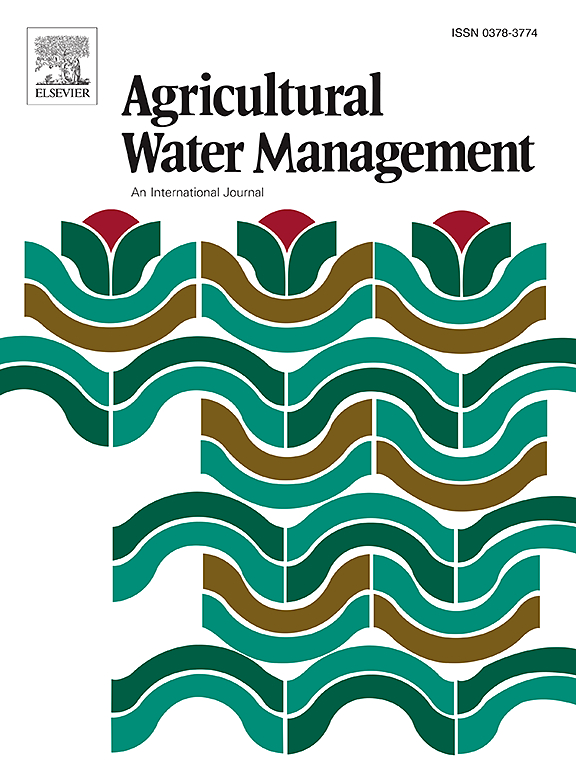Recycling nutrients: The promise and perils of wastewater use in global and Brazilian agriculture
IF 6.5
1区 农林科学
Q1 AGRONOMY
引用次数: 0
Abstract
As global water demand rises – driven by climate change, population growth, and agricultural expansion – treated wastewater irrigation (WWI) offers a promising strategy for water conservation and nutrient recycling. Agriculture consumes nearly 70 % of global freshwater, while only 50.8 % of wastewater is treated in Brazil, where WWI represents less than 0.1 % of total irrigation. This review critically assesses the potential and challenges of WWI in Brazilian agriculture by comparing global practices, regulatory frameworks, and treatment technologies. WWI can significantly reduce freshwater withdrawals and dependence on chemical fertilizers, enhancing soil fertility through the recycling of nitrogen, phosphorus, and potassium. However, persistent contaminants of emerging concern (CECs) – including antibiotic-resistant bacteria (ARB), resistance genes (ARGs), microplastics, and heavy metals – pose environmental and health risks, as conventional systems such as UASB reactors and stabilization ponds, which are vastly implemented in Brazil, were not designed to remove them efficiently. Despite successful examples in high-income countries, regulatory gaps persist in low- and middle-income countries like Brazil, where only 9 of 27 states have local guidelines for wastewater reuse. The adoption of advanced technologies (e.g., membrane filtration, ozonation, UV disinfection) and the development of risk-based regulatory approaches are essential to ensure safety and public acceptance. Educational initiatives and participatory governance can further promote informed decision-making. By investing in technological innovation, harmonized regulation, and interdisciplinary research, WWI could evolve from a niche practice to a mainstream solution for sustainable agriculture, food security, and water resource management in Brazil and globally.
回收养分:全球和巴西农业废水利用的希望和危险
在气候变化、人口增长和农业扩张的驱动下,全球用水需求不断上升,污水处理灌溉(WWI)为节水和养分循环提供了一种有前景的策略。农业消耗了全球近70% %的淡水,而巴西只有50.8% %的废水得到处理,其中第一次世界大战占灌溉总量的不到0.1% %。本综述通过比较全球实践、监管框架和处理技术,批判性地评估了第一次世界大战对巴西农业的潜力和挑战。第一次世界大战可以显著减少淡水提取和对化肥的依赖,通过氮、磷和钾的循环利用提高土壤肥力。然而,新出现的持久性污染物(CECs)——包括耐抗生素细菌(ARB)、耐药基因(arg)、微塑料和重金属——构成了环境和健康风险,因为在巴西广泛实施的UASB反应器和稳定池等传统系统的设计并不能有效地去除它们。尽管在高收入国家有成功的例子,但在巴西等低收入和中等收入国家,监管差距仍然存在。在巴西,27个州中只有9个州制定了废水回用的地方指导方针。采用先进技术(如膜过滤、臭氧化、紫外线消毒)和制定基于风险的监管方法对于确保安全和公众接受至关重要。教育倡议和参与式治理可以进一步促进知情决策。通过投资于技术创新、协调监管和跨学科研究,第一次世界大战可以从利基实践发展成为巴西乃至全球可持续农业、粮食安全和水资源管理的主流解决方案。
本文章由计算机程序翻译,如有差异,请以英文原文为准。
求助全文
约1分钟内获得全文
求助全文
来源期刊

Agricultural Water Management
农林科学-农艺学
CiteScore
12.10
自引率
14.90%
发文量
648
审稿时长
4.9 months
期刊介绍:
Agricultural Water Management publishes papers of international significance relating to the science, economics, and policy of agricultural water management. In all cases, manuscripts must address implications and provide insight regarding agricultural water management.
 求助内容:
求助内容: 应助结果提醒方式:
应助结果提醒方式:


